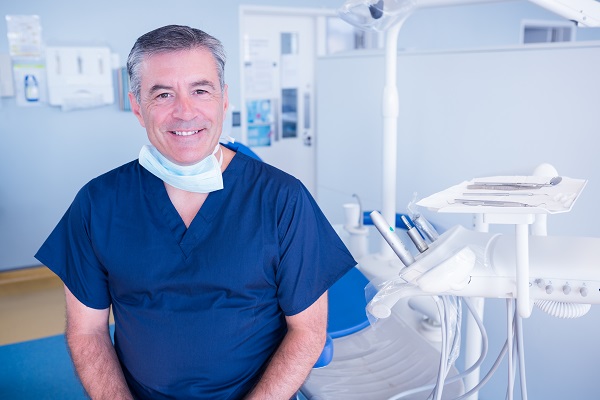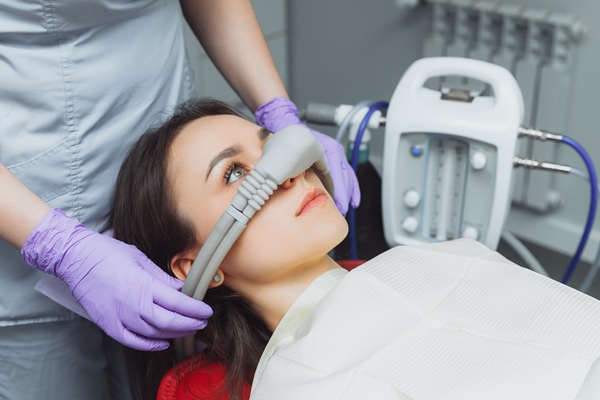FAQ About Sedation Dentistry

Sedation dentistry is for anyone who gets anxious when it is time to go to the dentist. The condition is called dental anxiety and it affects millions of people in the U.S.
There is a multitude of reasons why a person might develop a fear of dentists. It can be caused by a traumatic past experience, a fear of pain, a fear of the tools used by dentists or a fear of being crowded by a dentist and their assistants as they perform dental work. Thankfully, sedation dentistry is a simple way to reduce, if not eliminate dental anxiety.
Frequently asked questions about sedation dentistry
Thinking about giving sedation dentistry a try? Below are the answers to some of the questions you might have.
Q. How will I feel during my treatment?
Most patients do not feel anything during treatments with dental sedatives. There is little to no discomfort and patients feel relaxed during their treatment. Sedation dentistry typically leaves patients feeling relaxed and at ease.
Q. Will I be conscious during my treatment?
Yes. Most of the sedatives that are used keep patients responsive and conscious during their treatment. These medications simply put you in a more relaxed state.
Q. How safe is sedation dentistry?
Sedation dentistry is safe for most patients young and old alike. Before administering the sedatives, the dentist will go over the patient's medical history and any medications they are currently taking to reduce the risk of negative reactions.
Q. How long does it take for dental sedatives to wear off?
It depends on the type of sedatives being used and how quickly the patient's body breaks down the active compounds. Nitrous oxide, which is commonly known as laughing gas is one of the most used dental sedatives and it wears off within minutes. Oral sedatives take longer to leave the patient's system and the effects can be felt for a couple of hours after treatment.
Q. Who needs sedation dentistry?
Anyone who experiences dental anxiety is a good candidate for sedation dentistry. Signs that you might be a good candidate for sedatives include the following:
- An extreme fear of going to the dentist
- Fear of injections or pain
- A traumatic past experience during dental treatments
- Sensitivity to the noises and smells at the dentist's clinic
- An overactive gag reflex
- Feeling ashamed about the condition of your teeth
- Wanting dental experiences to be more comfortable
Q. What are the common types of sedatives used in dentistry?
There is a range of sedatives used to deal with dental anxiety. The more common types of sedatives used include the following:
- Inhaled sedation: This involves delivering laughing gas, which is medically known as nitrous oxide. It is administered via a nose mask. The medication makes patients feel happy and relaxed. They might even have a few outbursts of laughter when under the influence of nitrous oxide, which is why it is also known as laughing gas.
- Oral sedation: These pills are taken prior to the appointment and they help to prevent the jitters that occur before getting to the dentist.
- IV sedation: These sedatives are delivered intravenously. It is typically used for patients with severe dental anxiety or for those who are undergoing a more advanced procedure.
Put dental phobia behind you
Call or visit our Ann Arbor clinic to learn more about sedation dentistry and how it can be used to deal with dental anxiety.
Request an appointment here: https://www.annarborpersonaltouchdentistry.com or call Shiva G. Rad, D.D.S. at (734) 436-0817 for an appointment in our Ann Arbor office.
Check out what others are saying about our dental services on Yelp: Sedation Dentistry in Ann Arbor, MI.
Recent Posts
You may have heard a lot about sedation dentistry recently. It is appealing to many patients, especially those who have fears about dental treatments. Visiting the dentist may not be the most exciting event in your life, but these appointments are important. You should not avoid seeing the dentist because you are worried about the…
For many patients, sedation dentistry is a must for certain dental appointments. This branch of dentistry focuses on putting patients at ease and calming anxieties during visits. The use of sedation is most frequent when major treatments or procedures take place. These could include a root canal, filling, or restorative work such as a crown…
In general dentistry, cracked teeth are, unfortunately, a common problem that requires attention. Thankfully, modern-day dentistry has created a few different options that can solve the problem of a cracked tooth. In most situations, a general dentist can salvage a cracked tooth; however, it is important to know that there are a few factors that…
We have all heard about how Botox® is used to eliminate the early signs of aging. But what you may not know is that the injectable protein that relaxes muscles and reduces wrinkles can also be useful for various esthetic dental procedures by helping enhance smiles and reducing pain. Esthetic dentistry refers to various types of…


